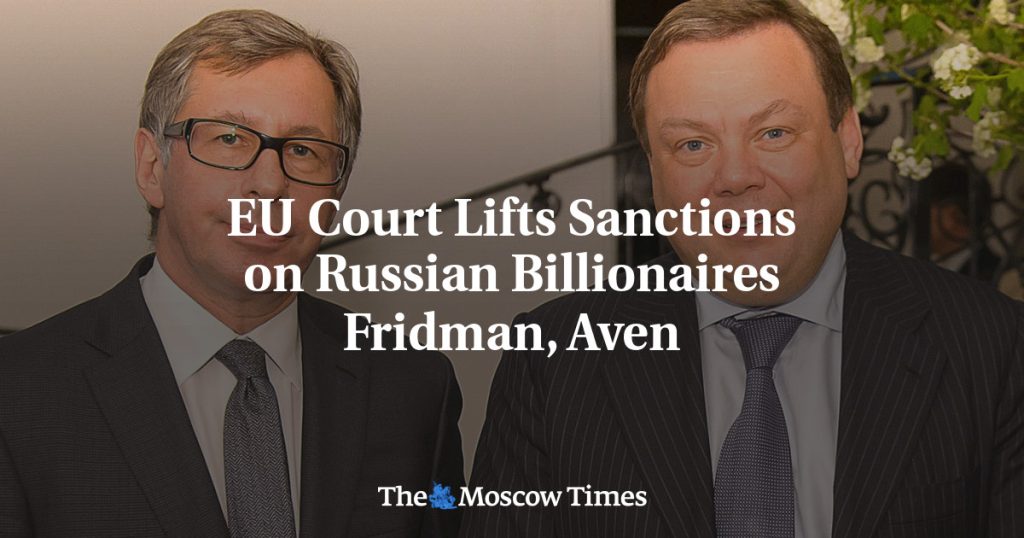The European Union Court of Justice has made a ruling to remove Russian billionaires Mikhail Fridman and Petr Aven from the EU’s sanctions list in response to Russia’s invasion of Ukraine. The court stated that the inclusion of Fridman and Aven on the list was not sufficiently substantiated and therefore not justified. Fridman, who co-founded the investment conglomerate Alfa Group, has lived in London since 2015 and denies allegations that he is close to the Russian authorities. Aven, who headed Alfa until March 2022, also disputes claims that he is close to President Vladimir Putin and has been living abroad since the invasion of Ukraine.
The ruling comes after the General Court upheld the requests of Petr Aven and Mikhail Fridman and annulled both the initial acts and the acts maintaining the lists of restrictive measures for the period from February 28, 2022, to March 15, 2023. The Luxembourg-based court’s decision highlights the ongoing debate regarding the imposition of sanctions on Russian individuals and entities in response to the conflict in Ukraine. The court’s statement suggests that the evidence provided for including Fridman and Aven on the sanctions list was deemed insufficient to justify their inclusion.
Mikhail Fridman, who was born in Soviet Ukraine and made his fortune in Russia, has been a prominent figure in the business world and has been based in London for several years. He has consistently denied any close ties to the Russian authorities and has been vocal in his opposition to the invasion of Ukraine. Likewise, Petr Aven, who was the head of Alfa until 2022, has refuted claims of being associated with President Putin and has been residing abroad in light of recent events. The ruling to remove them from the EU’s sanctions list reflects the complexity of determining individuals’ involvement in political affairs and the scrutiny required when imposing sanctions.
The decision by the European Union Court of Justice to remove Mikhail Fridman and Petr Aven from the sanctions list underscores the ongoing challenges faced in international relations amidst the conflict in Ukraine. The court’s ruling raises questions about the criteria used to justify imposing sanctions on individuals and entities, particularly in cases where the evidence may not be sufficient to support such measures. The case of Fridman and Aven highlights the importance of thorough investigation and substantiation when imposing sanctions, as well as the need for transparency and accountability in decision-making processes.
The ruling to remove Fridman and Aven from the sanctions list may have implications for future actions taken by the EU in response to the conflict in Ukraine and other geopolitical issues. The court’s decision sets a precedent for evaluating the justification of sanctions and the evidence required to support such measures. It also emphasizes the need for clarity and accuracy in identifying individuals and entities that may be subject to sanctions, as well as the importance of upholding due process and fairness in legal proceedings. The removal of Fridman and Aven from the EU’s sanctions list marks a significant development in the ongoing debate surrounding sanctions and their effectiveness in addressing international conflicts.
Overall, the European Union Court of Justice’s ruling to remove Mikhail Fridman and Petr Aven from the sanctions list reflects a nuanced and complex understanding of the challenges posed by the conflict in Ukraine and the imposition of sanctions. The court’s decision highlights the importance of rigorous scrutiny and evidence-based decision-making in determining individuals’ involvement in political affairs and upholding legal standards. As the situation in Ukraine continues to evolve, the case of Fridman and Aven serves as a reminder of the complexities of international relations and the necessity of carefully considering the implications of sanctions on individuals and entities in response to geopolitical events.


